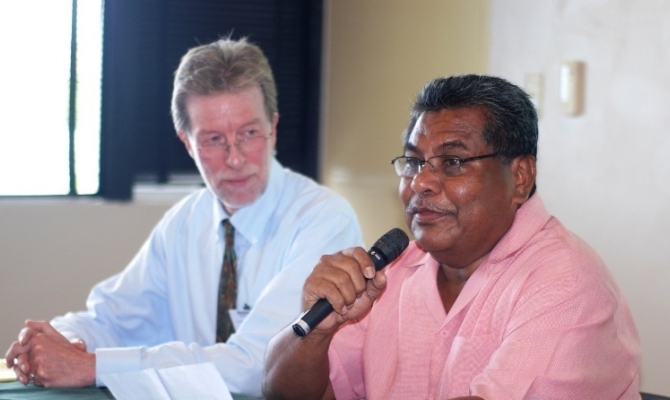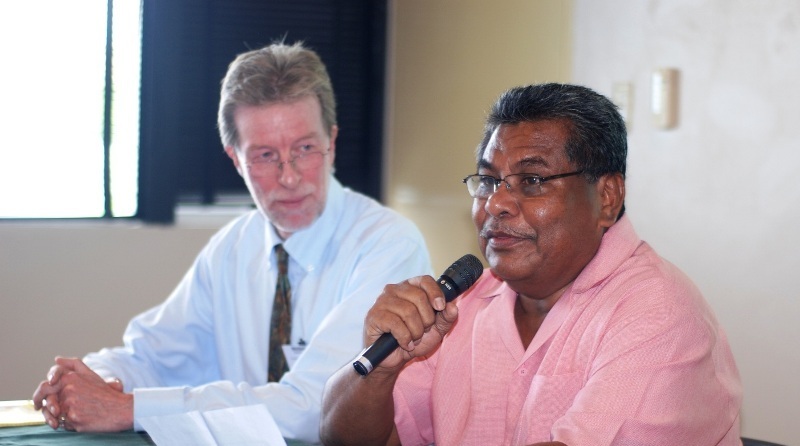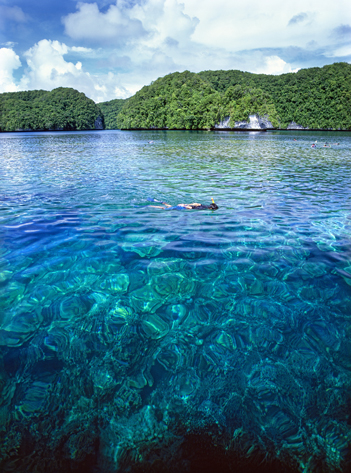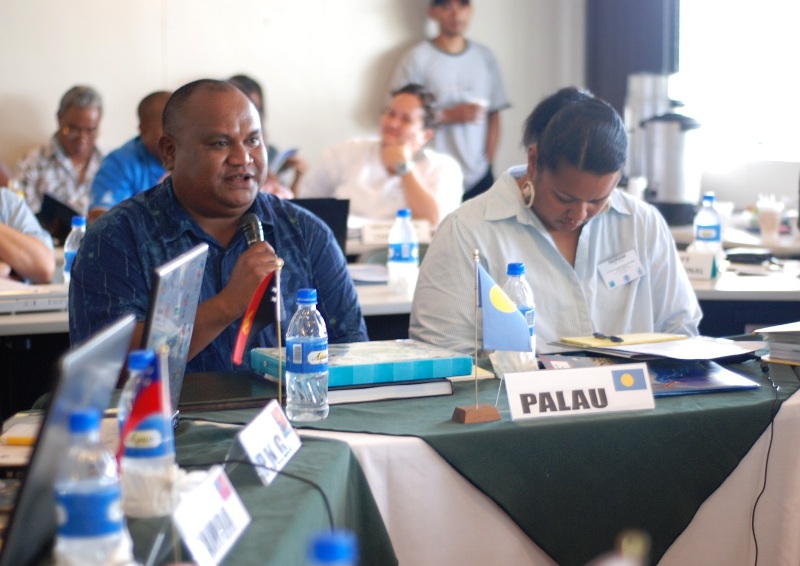
"With your kind assistance Palau will be able to protect and conserve its wetlands for our future generations," – Hon. Kerai Mariur, Vice President, Palau.
26 March, 2012, Palau - 2012 is an important year for the conservation of Pacific wetlands as over 160 countries will come together in July for the 11 tri-annual Conference of the Parties to the Ramsar Convention on Wetlands.
To prepare for this international event, over 30 participants from throughout Oceania are meeting in Palau this week.
 (L-R) Prof. Nick Davidson, Deputy Secretary-General of the Ramsar Convention Secretariat, and Hon. Kerai Mariur, Vice President of Palau
(L-R) Prof. Nick Davidson, Deputy Secretary-General of the Ramsar Convention Secretariat, and Hon. Kerai Mariur, Vice President of Palau
The Ramsar Convention on Wetlands promotes national action and international cooperation for the conservation and wise use of wetlands and their resources.
Seven members of the Secretariat of the Pacific Regional Environment Programme are Ramsar contracting parties: Australia, Fiji, New Zealand, Palau, Papua New Guinea and Samoa. A number of other island countries are in the process of joining, including Kiribati, Tonga and Vanuatu.
Palau is a fitting backdrop for the meeting. The island nation is home to the Lake Ngardok Nature Reserve, Palau's first wetland of international importance.  It also boasts the Ngerukeuid Islands (70 Islands) for which an application is before UNESCO to designate these islands as a World Heritage Site.
It also boasts the Ngerukeuid Islands (70 Islands) for which an application is before UNESCO to designate these islands as a World Heritage Site.
Pictured: Marine Protected Area, Chelbacheb, Palau
© S. Chape
"Wetlands play a significant role in the everyday lives of Palauan people. They provide food, medicine, building materials, and are important habitats for several rare and endemic plant and animal species," said Vice President of Palau, Hon. Kerai Mariur as he opened the one week gathering.
Palau has one of the largest portions of species that occur nowhere else in the world; supports more coral, fish, and other invertebrates per unit area of marine habitat than any other place on Earth; is home to the most isolated Dugon dugon population in the world; is home to seven of the nine species of giant clams; is home to the largest natural lake in Micronesia and; one of the largest undisturbed tropical rainforests in Micronesia.
Palau is also committed to the Micronesia Challenge with the Marshall Islands, Federated States of Micronesia, Guam and the Commonwealth of the Northern Mariana Islands. They are dedicated to effectively conserving at least 30% of the near-shore marine and 20% of the terrestrial resources across Micronesia by the year 2020. Palau has developed the Protected Areas Network to help meet the goals of the Challenge.
"Wetlands have also become a source of income due to the recent trend in ecotourism. Palau has several sustainable wetland ecotourism sites that have begun to attract visitors from other countries as well as local residents. With all these factors considered we need to ensure that Palau's wetlands are conserved or sustainably developed. With your kind assistance Palau will be able to protect and conserve its wetlands for future generations."
 Participant from Palau addresses the floor
Participant from Palau addresses the floor
Notes:
The 5th Oceania Regional Preparatory Meeting for the 11th Conference of the Contracting Parties to the Convention on Wetlands, hosted in Palau is from 26 to 30 March. The meeting is attended by Australia, Fiji, Kiribati, Marshall Islands, New Caledonia, New Zealand, Palau, Papua New Guinea, Samoa, Tonga, and Vanuatu.
Partners that are attending the meeting are from Japan International Cooperation Agency (JICA) Palau Office, IUCN Oceania Regional Office, Palau Conservation Society, Birdlife International and the Micronesia Challenge Regional Office, among others.
The 5th Oceania Regional Meeting for Ramsar COP11 in Palau is funded by the Governments of Australia and France, with additional support from the UNEP and EU funded Multi-lateral Environment Capacity building project.